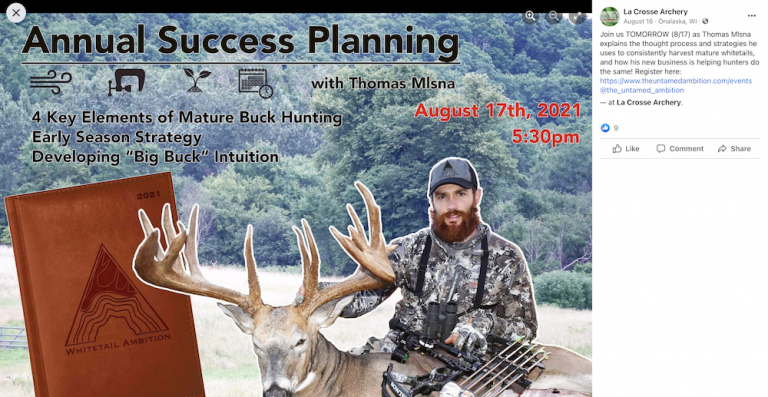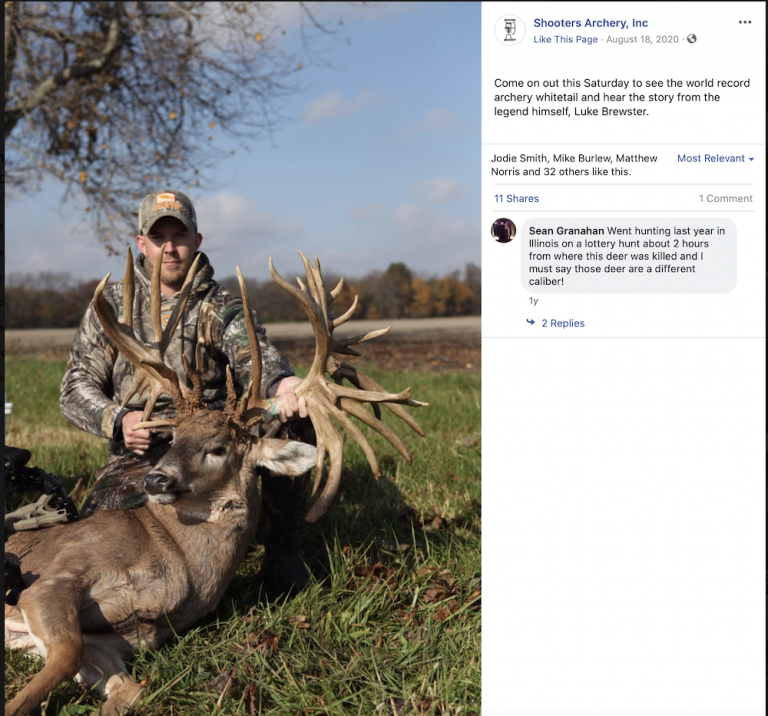BusinessMarketing
How Mentoring Can Boost Your Business
Get more customers and attention for your business by teaching newcomers how to hunt.
Photo Credit: ATA
Mentors help new participants learn safe, responsible hunting skills and tactics so they can hunt confidently and independently. Becoming a mentor or hosting a mentoring program can be extremely beneficial for you, for newcomers, for your business and for the outdoor industry.
Let’s look at how mentoring positively affects and benefits individuals, organizations and communities, and ways to become involved to start reaping the benefits.
Bowhunting is an exciting activity for newcomers, but it can be intimidating. The more support beginners receive when starting, the more likely they’ll stick with it. Mentors provide assistance by answering their questions, being good role models by demonstrating safe, ethical behaviors, and helping them feel comfortable in the field. In other words, having a mentor builds confidence and makes mentees feel supported.
By mentoring someone new, a mentor also gets to see hunting through fresh eyes. They’re usually reminded of hunting nuances, overlooked or underappreciated animal behaviors and what it was like to start the hunting journey or arrow an animal for the first time. These feelings can reignite a spark for hunting, giving mentors the boost they need to overcome challenges and appreciate game animals and the opportunity to get afield.

Host events at your shop to generate foot traffic. Photo Credit: La Crosse Archery
Retailers who mentor or have mentoring programs for their employees position their business as a trustworthy information source. Some retailers get deemed as the local community hunting experts and people from the surrounding area turn to them for reliable knowledge. Mentoring also helps a retail business become relevant, cherished and appreciated. Helping others tends to create loyal customers who return year after year for equipment, service and support.
Providing a mentoring service also helps retailers meet new people, increase their community awareness and relevancy, and build new or current partnerships with like-minded people and organizations. Those perks tend to have future benefits, as people and partners recommend the business and provide feedback to help more people get involved.
Many manufacturers create peer-mentored hunt programs to build workplace camaraderie, increase employee satisfaction and help employees see the products they make and promote in action. Using the manufactured products during mentored hunts also helps create product familiarity and loyalty, which increases sales. Manufacturers can also teach newcomers about the company’s role in conservation through its federal excise tax contributions so the mentees can see — and feel connected to — the bigger picture.
Plus, both retailers and manufacturers can share their mentoring experiences and story with media and press folks to gain additional exposure for their business. The mentor-and-mentee angle provides a unique story for journalists that might inspire other people to reach out if they’re interested or prompt current hunters to mentor someone new. Work with the press to communicate that mentoring helps make hunting more accessible, approachable and relevant. Then, ask them to plug your business as the first stop for anyone interested in archery or hunting.
Hunters are vital to conservation because they contribute funds to wildlife and habitat restoration projects every time they purchase a hunting license or piece of archery equipment. Mentoring newcomers helps increase participation numbers, and more hunters means more funding and support for conservation.
Hunters also help wildlife agencies control game populations that affect the environment. For example, large elk and deer populations can overbrowse the landscape and cause crop damage, and they can be more susceptible to disease and starvation. Hunting is a safe, sustainable way to manage wildlife populations.
Additionally, mentors usually educate others about the benefits of hunting and the contributions hunting provides. The more knowledge and understanding people have about hunting, the more relatable hunters can be, which improves the public’s perception of hunters and hunting.

Partner with hunters to have them share their stories. Photo Credit: Shooters Archery
Mentoring newcomers — at any rate, through any process — will help your business. Employers can mentor people individually, as can employees, pro staff and customers. Set goals that define how many newcomers your company would like to introduce to hunting each year. Then, determine whether you’ll mentor people yourself or how you plan to involve others to help. For example, you could encourage staff members to take a friend, family member or community member afield. Or you could create a mentoring program to get groups of people involved simultaneously. Formal programs are an excellent way to invite and encourage current customers to mentor other community members. Simply presenting the opportunity to get involved is enough to motivate some folks.
Regardless of who and how you decide to start mentoring, please remember you don’t have to oversee the process alone. Partner with your state agency or a local conservation organization and work together on a mentoring program or endeavor. These groups can help you find people to mentor or plug you into current mentoring programs. The ATA also has educational materials to help you get started.
The ATA’s “Hunting Mentor Guide,” created in 2019, provides ATA members and partners with resources and knowledge to help nonhunters become hunters. The guide is available to download for free for ATA members. Visit www.archerytradest.wpengine.com/mentoring to get the document.
The “Hunting Mentor Guide” discusses:
- why it’s important to mentor and create new hunters;
- how to find potential new hunters;
- how to find and train new mentors;
- topics to teach a new hunter;
- what to do during a mentored hunt;
- case studies that highlight successful mentoring programs; and
- how to communicate with and continuously support beginners.
Many state wildlife agencies and sportsmen’s or conservation organizations also have resources and mentor training programs, so don’t be afraid to inquire or ask for help. We’re all in this together.
These articles also have helpful information about mentoring:
Be a Bowhunting Mentor
Growing Bowhunting: Why Mentoring Matters
20 Do’s and Don’ts for Mentoring New Hunters
If you have questions or need advice about mentoring, please contact Josh Gold, ATA’s senior manager of R3 and state relations, at joshgold@archerytrade.org or (866) 266-2776, ext. 107.

WE ARE HERE TO HELP THE INDUSTRY, TO HELP INDIVIDUAL BUSINESSES GET THE MOST OUT OF THE INDUSTRY, AND TO HELP YOU.